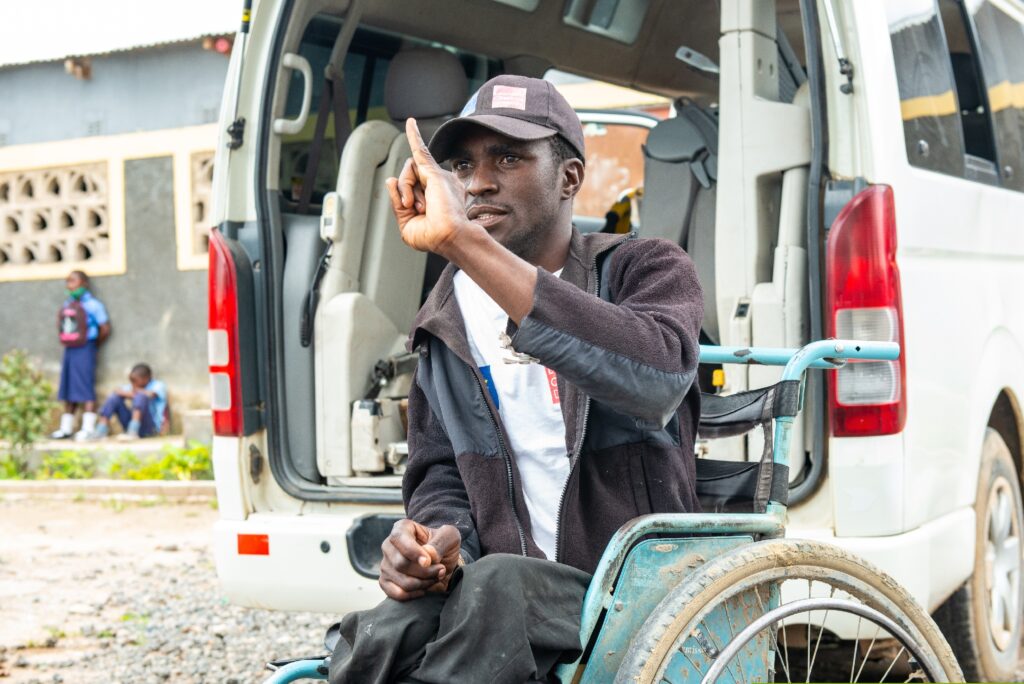
ZAMBIA: COURTS MISS OPPORTUNITY TO EXTEND EQUAL PROTECTION BEFORE THE LAW FOR PERSONS WITH INTELLECTUAL AND PSYCHOSOCIAL DISABILITIES
For immediate release
25th October 2023.
This statement is issued as a response to a judgment passed by the Supreme Court on the 25th of September 2023.
The Supreme Court of Zambia has handed down a judgment ruling Katontoka (Suing on his own behalf and The Executive Director of the Mental Health Users Network of Zambia) and Waliuya (Suing on his own behalf and the Executive Director of Disability Rights Watch) (Appeal No. 01 of 2023) [2023] ZMSC 16 (25 September 2023) against a petition challenging the constitutionality of Section 4 of the Zambian Mental Health Act 2019. While applauding the petitioners, Sylvester Katontonka of the Mental Health Users’ Network of Zambia (MHUNZA) and Wamundila Waliuya of Disability Rights Watch (DRW), the court upheld a previous decision of the Zambian High Court that found Section 4 of the Mental Health Act not to be unconstitutional. The judges decided that Section 4 does not infringe on the rights of “mental patients”, despite submissions explaining that current legislation allows for substitute decision-making in violation of Article 12 of the Convention on the Rights of Persons with Disabilities (CRPD), which Zambia ratified in 2010. While conceding that there “can be no winner or loser” in this case, the Supreme Court called on the Government of Zambia to “prioritize the general wellness of its citizens”, acknowledging the need to “change the mindset of the public in general in order to shift towards a “human rights approach.”
In November 2019, MHUNZA and DRW launched a constitutional petition before the High Court in Lusaka contesting the constitutionality of Section 4 of the Mental Health Act 2019. In this case, the petitioners Sylvester Katontoka and Wamundila Waliuya alleged that their right to be equally recognised as persons within the law was being violated. In particular, they argued that maintaining the legal possibility of imposing substitute decision-making on persons with psychosocial disabilities did not offer protection, but instead violated a wide range of rights and freedoms afforded to all Zambian citizens. The petitioners argued that the Zambian Constitution under Articles 11 (a), 13 (1), 19 (1) and 23 (1) recognises everyone including persons with intellectual and psychosocial disabilities (or as often referred to as “people with mental disabilities”) must be regarded as having full legal capacity law. They pointed out that existence of Section 4 of the Mental Health Act, discriminatorily denies persons with intellectual and psychosocial disabilities from having their legal capacity respected on an equal basis with other Zambian citizens. As a result, Katontoka and Waliuya explained that the law treats persons with intellectual and psychosocial disabilities as second-class citizens.
On 28th December 2022, the Zambian High Court dismissed the petitioners’ case, finding that Section 4 does not discriminate persons with intellectual and psychosocial disabilities in Zambia. In ruling against the petition, the High Court relied on the outdated 1991 ‘Principles for the protection of persons with mental illness and the improvement of mental health care’. The Principles are a statement of the UN General Assembly that predate adoption of the CRPD, using language that is now widely understood to be derogatory and being grounded in a medical model approach that is not outdated.
Following the ruling, the petitioners approached the Supreme Court and argued that since Zambia has signed and ratified the CRPD, all domestic laws ought to be aligned with it including the Mental Health Act 2019. In their submissions, they argued that the continuing enforcement of Section 4 of the Mental Health Act violates Zambia’s international obligations under the CRPD.
This outcome is that the Mental Health Act remains in full force, and Zambia remains in violation of core international obligations. In practice, the will and preferences of persons with psychosocial disabilities can be lawfully ignored where persons are deemed as “lacking capacity”. Persons with intellectual and psychosocial disabilities will continue to face challenges and their choices may not always be given the respect they deserve, potentially leading to instances of human rights violations, as emphasized by the petitioners. Despite Zambia’s commitment to safeguarding the rights of all, including those with disabilities through the signing and ratification of the CRPD, persons with intellectual and psychosocial disabilities continue to face exclusion and marginalization. Unfortunately, the Supreme Court judges failed to acknowledge the importance of ensuring persons with disabilities can make their own choice, instead propagating paternalistic notions that such decisions should be made “in consultation with members of the family of the affected mental patient”.
The Supreme Court itself unfortunately resorted to using derogatory language such as “mental patients” and “persons with mental illness” throughout the judgment. Such language is no longer acceptable in the realisation of rights for persons with intellectual and psychosocial disabilities, and other courts in Africa have indeed acknowledged that such language is derogatory.
In supporting the two petitioners, Sylvester Katontoka and Wamundila Waliuya, Jennifer Wairimu, Litigation Officer of the Validity Foundation has said:
“This is a significant missed opportunity by the Zambian courts to lead the region on the discussion pertaining article 12 of the CRPD, as well as address the persistent conflation of legal capacity and mental capacity that remains all too common in many countries. The right to legal capacity is a primary safeguard for protecting the human rights of persons with psychosocial disabilities. It is a fundamental misconception that removing a person’s legal capacity protects them. Indeed, by removing legal capacity, our legal systems remove the possibility for persons with psychosocial disabilities to enforce their human rights. Regrettably, the problem with such attitudes is that they are discriminatorily applied to persons with disabilities, and they wrongly conflate the concepts of legal capacity and mental capacity. Understanding and upholding this crucial distinction is imperative as it opens the possibility for all persons with disabilities to achieve equality before the law and will enable persons with intellectual and psychosocial disabilities to live with independence and support in the community, and to truly become the authors of their own lives.”
MHUNZA, DRW, Southern Africa Litigation Centre and Validity Foundation call on Zambian legislators and the government through the Ministry of Justice to ensure that the Mental Health Act of 2019 is quickly amended in its section 4 in order to comply with international human rights law as in the UN Convention on the Rights of Persons with Disabilities. Organisations of and for persons with disabilities are also being called upon to actively continue to advocate for the review and reform of the Mental Health Act.
Wamundila Waliuya
Director
Disability Rights Watch.
